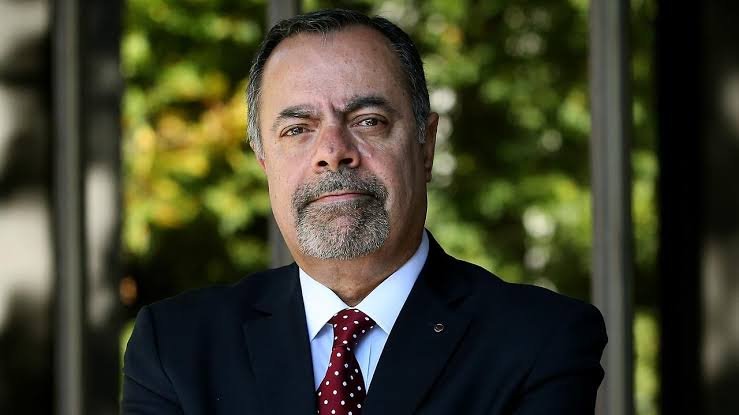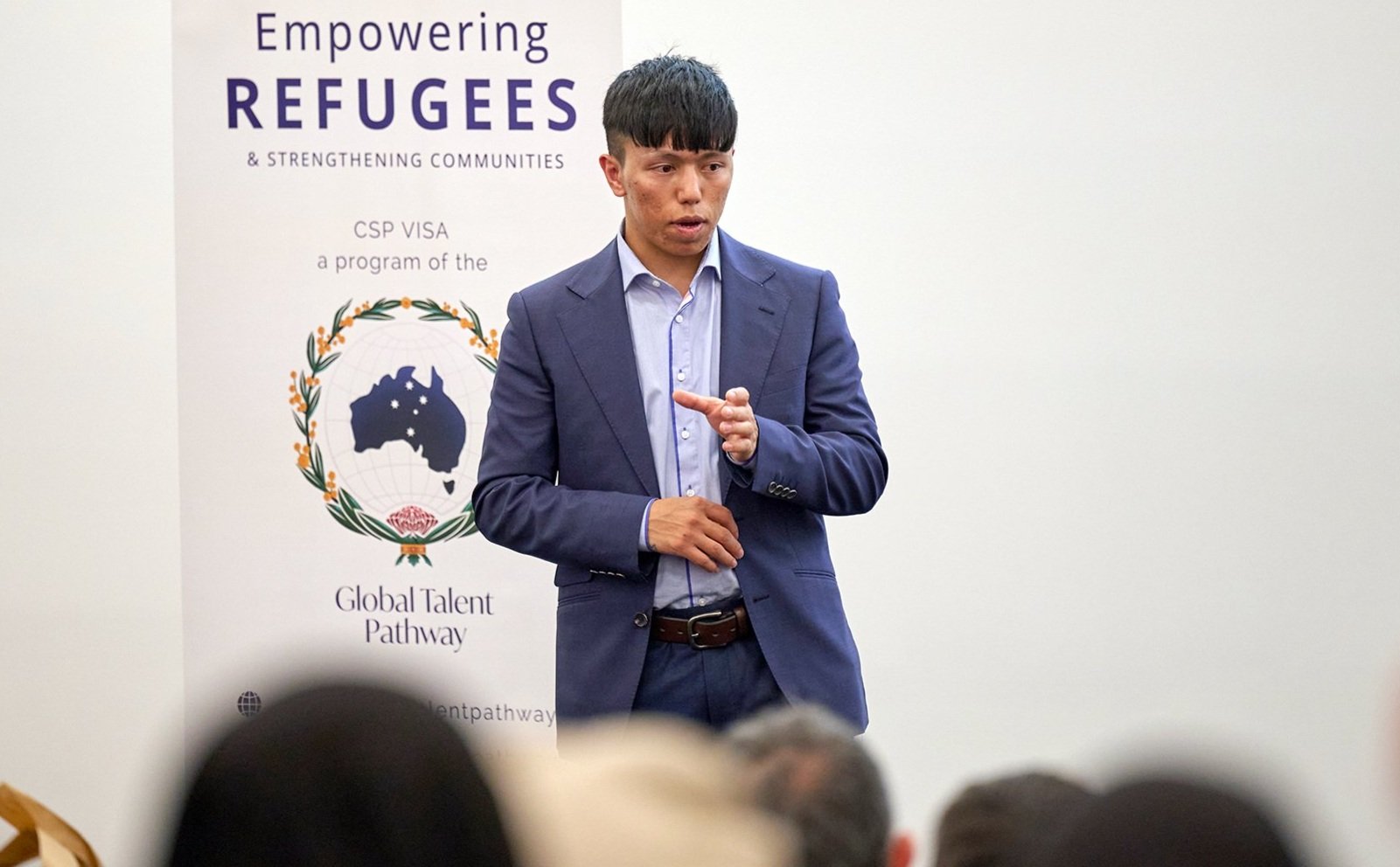




How One 21-Year-Old is Championing Change for Hazara Refugees
At just 21 years old, Mohammad Azeem Ibrahimi is reshaping lives and breaking barriers for Hazara refugees in Australia. From fleeing the Taliban’s threats in Afghanistan to winning the Volunteer of the Year Award in Melbourne, Mohammad’s journey is one of resilience, compassion, and dedication. Now, as a Community Outreach Specialist with Global Talent Pathway, he continues to support newly arrived migrants, helping them build better lives in their new home.

Unlocking Potential: How Refugees Are Revitalizing Australia's Workforce
It’s something Australia has long been accustomed to, with refugees once again knocking on our door seeking safety, stability and a chance to rebuild their lives. Refugees are not a burden on Australia; they contribute to the economy in ways that are often unseen During the post-World War II period particularly, strongly anti-fascist policies embraced those fleeing wars and persecution in Europe, including a resettlement scheme called the Assisted Passage Migrant Program which resettled more than 300,000 refugees between 1947 and 1972.

The Journey of Dignity: Why Refugee Employment Matters
While earning a living is certainly one key component of the potential that employment holds, it isn’t all. A job offers many of us a framework for activity, meaning and dignity, an effective tool for engagement and a place to belong.

Breaking the Cycle: How Employment Fosters Refugee Independence
For most, their arrival in Australia is a life-saving moment of hope and a tangible chance to start again from zero. Moving from refugee dependency to independence, however, requires not only resettlement but also work. Finding work is the best way to break the common entanglement of income dependence over long periods and charity. It restores former dependent refugees to independence and self-reliance.

Mr. Morris K Mukasa
Mr. Morris Mukasa is a distinguished advocate and humanitarian whose work in crisis management, conflict resolution, and refugee support spans multiple continents. As an advisory board member at Global Talent Pathway and co-founder of CCPE Worldwide, he has transformed the lives of vulnerable refugees through the acclaimed Kwetu Project, which harnesses the healing power of music and creative arts. Recognized with awards such as the 2024 African Australian Community Service Award, Morris continues to champion social justice and empower marginalized communities.

Christian Compassion in Action: Connecting Refugees with Opportunities in Australia
In many Christian traditions, the most pressing moral imperative is expressed in words attributed to Christ: ‘If I have not served you, I have served no-one’. And the sort of service that brings one closer to Christ is the kindleness to the vulnerable, the stranger, the outsider, the one who finds their life and our own imperilled by circumstances not of their making.

Skill, Determination, and Hope: Refugees' Impact on the Australian Economy
The composition of Australia’s economy changes quickly and, as a consequence, so does the nature of the labour shortage faced by many industries. Healthcare, construction – across the country, employers are struggling to find the staff they need, with the right qualifications. The voices we hear in the debate about labour shortages tend not to be refugees’.

Reimagining Corporate Innovation: How Refugees Can Be the Missing Piece
Corporate innovation has become a buzzword in today’s business environment. Yet, despite investing in technology, strategy consultants, and research and development, many companies still find themselves lagging in innovation. The problem? A narrow approach to talent. While many Australian companies focus on hiring locally or recruiting from familiar international talent pools, they overlook a key demographic that can revitalise their innovation efforts: refugees.

Australia’s Workforce of the Next Generation: Refugees and the Skills Shortage.
Given that some of the largest labour market sectors in Australia face skills shortages, making use of the professional skills of refugees makes sense as part of the solution. When they arrive in Australia, many refugees are already professional and business leaders. More than 140,000 refugees have arrived in Australia in the past few years and 18,500 are expected to arrive over the next four years.

From Refugee Camps to Australian Workplaces: Stories of Hope and Transformation
The journey from refugee camp to Australian workplace is a story of tenacity and hope and flourishing. It is a story of exile and conflict, exploitation and arrival, but it is also a story of employment and enrichment. For refugees, the journey to employment in Australia usually starts in insecurity, disability and pain.

Beyond Welfare: How Refugees Contribute to Australia’s Prosperity
Upon arrival in Australia, refugees often find themselves in need of basic assistance: housing, schools and medical care. Since they are newly arrived, many use welfare assistance, supporting them through the early period of the settlement. Contrary to popular belief, refugees are most certainly not a long-term welfare-dependency problem for the Australian economy and society.

Changing Attitudes: A Corporate Perspective on Refugee Employment.
With globalisation and growing social awareness, corporate social responsibility (CSR) has become an essential part of business strategy for many companies. ‘CSR’ is shorthand for the commitment that businesses make – beyond profit – to driving positive social change in areas such as human rights, labour rules and the environment, and behaving ethically.

Faith and Work: How Our Christian Values Inspire Refugee Employment Initiatives
It’s a deeply Christian calling to serve others, and refugees are among the most vulnerable of people: men and women uprooted from their native lands, often fleeing war, persecution or natural disaster. Scripture is rife with injunctions to welcome the stranger and care for the oppressed, so refugee employment falls squarely within the calling of many Christian organisations to bring hope, dignity and independence to those in need.

Strengthening Communities: The Positive Ripple Effects of Employing Refugees
Employing refugees has powerful benefits far beyond the individual refugee as well: employment supports families, strengthens community, and adds to the local economy. At the systemic level, enhancing refugee employment builds resilience and inclusion in society. By employing refugees, we build stronger, more vibrant communities that are more equipped to meet upcoming challenges.

A Path to Independence: How Employment Transforms Refugees' Lives
Working opportunities are more than just income. For refugees who have fled war, violence and persecution, the initial step towards formal employment means new beginnings – an opportunity to contribute, to build their lives, to become independent again. A nourishing future for refugees across the world means being able to financially support one’s family and make a contribution to society. It’s also about growing into the now instead of remaining caught in the turmoil of the past.

From Crisis to Career: How We Help Refugees Thrive in the Australian Workforce’
For those arriving in Australia, this can be an overwhelming endeavour. Refugees are coming to us, having lost their profession through conflict, persecution or disaster – the most recent being those fleeing Ukraine – and seeking to rebuild their lives through work. Their journey from crisis to career can be long and arduous. It involves complexities such as bridging language barriers, and understanding and navigating foreign job markets.
